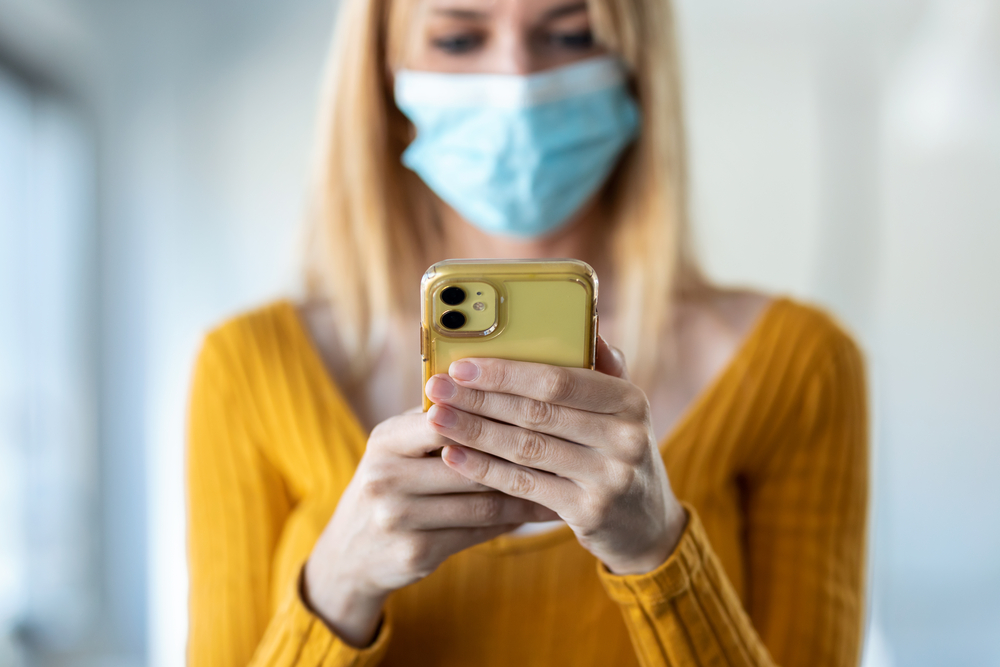
According to a new study, the average person will spend up to 34 years of their life looking at screens? We have to admit; we were pretty surprised at that statistic too. But when you think about how many times you are staring into a monitor, a smartphone, television, or laptop, it makes sense.
You are rushing to work. Or, if you work from home, docking your phone near your desk for the long commute from the kitchen to your office (#Pandemic Life). How many messages do you get every day on your phone? Guess because the number of interruptions or distractions you live with every day from your devices will surprise you.
That means everything from messages, news, and social media posts to private texts from work, or from your family and friends. And it is not that we are incapable of keeping up with the constant barrage of digital media. It’s the cost of our physical and mental health that should concern us.
In the United States, our socio-cultural habits already limit exercise.
Time outdoors is rare when you could stay in the comfort of your own home. And our media consumption has grown during the pandemic. A recent Nielsen survey states that media consumption may have increased by over 60% in the United States during the Covid-19 health emergency. An increase that also correlates with an exponential rise in anxiety and depression rates.
Screen time is bad for us. For a variety of reasons. Our brains and our bodies haven’t evolved as quickly as technology has. And for that reason, the impact of too much digital integration into our daily lives creates health and mental health problems.
Our bodies and brains were not physiologically designed to be sedentary. Our health and happiness depend on a variety of activities throughout the day. We know what we have to do to be healthy. We need to eat right, get good sleep, hydrate, and exercise. But all of those tenants of good healthcare can be hijacked or derailed by too much screen time.
The scientific studies are piling up. Too much screen time on a daily basis can also trigger chronic stress. You see, when we disrupt our natural sleep cycles, our endocrine or hormonal balance is thrown off course. Cortisol is the stress hormone. It’s meant to be released only during “fight or flight” moments. Like, when the horde of zombies is closing in on your favorite character in the movie. Ermahgerd !!!
Screen time causes stress and anxiety. The body misunderstands the stressors, and it floods the body with cortisol (just in case you are outrunning some zombies). Sustained elevated levels of the stress hormone cortisol completely tank your immune system. And many chronic diseases and also are caused by chronic long-term stress.

It’s so easy to take your phone to bed with you. After all, what if you miss an important text from your family or friends? Or, in some cases, your business or your boss? During the pandemic, the lines of work-life balance have become more blurred. Working from home means that we don’t always have a structured cut-off time from work.
We all want to stay in touch with family and friends. The COVID-19 health emergency and social distancing have had a big impact on our social lives. We miss people. Parents and grandparents we may not be seeing (outside of Facetime or video conferencing). Following the protocols to try to reduce infection rates has made us all feel isolated and lonely. And that means more time on our digital devices, trying to keep that social connectivity.
Have you found that you are having more problems getting to sleep? Or sleeping the whole night through, like you used to? If you have, you are not alone. The Sleep Foundation states that millions of Americans suffered from insomnia before the pandemic. But the problem is getting much worse.
We are more glued to our devices for news about the pandemic and advisories with less social interaction. Searching for a place where you can get your vaccine—caring for family or friends that are suffering mental health difficulties because of lack of in-person social support. We are wired to our digital devices 24/7 right now, and it’s creating a new health crisis.
Those flashing bright lights on every device you own are messing with your circadian rhythm. Confusing your body into thinking screen lights = daylight. And it’s one of the leading causes of chronic insomnia.
Are you going to bed later? Are you falling asleep with the television on? Or leaving your phone beside your bed and waking up to the sound of notifications? These are all pretty common for most of us as we pass the first anniversary of the global pandemic. The first one we’ve had to navigate in more than three generations.
During the pandemic, many people are finding it challenging to balance a healthy sleep schedule. Some of the reasons why sleep patterns are disrupted include:
So, if getting to sleep and staying asleep is a big problem for you, taking a one-day digital detox could be a good start. Combined with healthy habits and a schedule to ‘unplug’ from digital devices, you could solve the problem. And stop feeling the extra fatigue and exhaustion you may be coping with after months of insomnia or poor sleep.

Try it once. We were skeptical too, and as marketing professionals, whoever thought of taking a whole day away from blogs, social media, texts, graphics, podcasts, video editing… but we did. And you know what? It did make a big difference.
Can we all do one full day per week of a digital detox? That’s what the experts suggest. Along with limiting your screen time (smartphone, tablet, laptop, gaming console, and TV) to a cut-off time every night. As a healthy routine. Pick a time that is at least 1-2 hours before you want to fall asleep. And no screen time after that.
Be prepared! It’s going to feel so weird. What do you do with your hands? How do you keep yourself occupied and not ‘lose it’ because you are bored out of your mind? A digital detox day doesn’t mean that you can’t watch your favorite movie, though. Unplug from the computer and smartphone. Grab a blanket and your dog and a bowl of popcorn, and kick it OG style.
Finding it really hard to stay away from your devices? Talk to your budtender about a strain of cannabis that is so mellow; you won’t even miss the Internets for a day. And maybe, do the unthinkable; read a book. Or have one of those mythical things called naps. It will boost your immune system, mood, and mental health.
Get in the kitchen and cook something healthy. Enjoy making “slow food,” which is the opposite of the kind of food we generally eat while rushed during the workweek. Ask your Mom, Aunt, or another relative to show you how to make one of those family favorite home foods. And have a little visit on Zoom… oh, yeah—screen time.
Zoom calls with your tribe don’t count if they are early in the day! Plausible deniability! Baby steps. Like any other lifestyle change, it won’t happen overnight. Start by taking one day to see how you feel (you’re going to like it). Then, start reducing your screen time daily, especially before you go to bed. It is one huge act of self-care you can start practicing today.
Featured Image: nenetus | Deposit Photos
No Information on MarijuanaDoctors.Com should be used to diagnose, treat, prevent or cure any disease or condition. You can view our Full Disclaimer here.